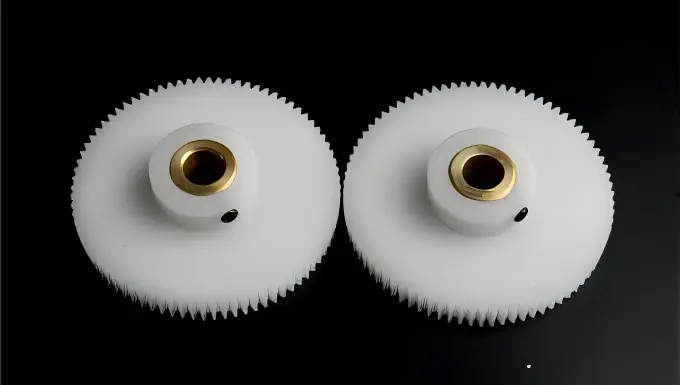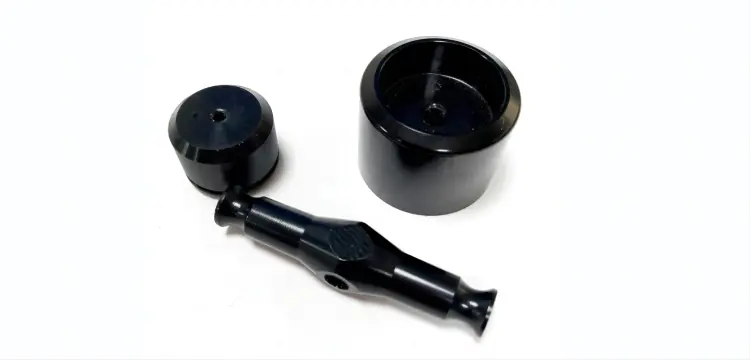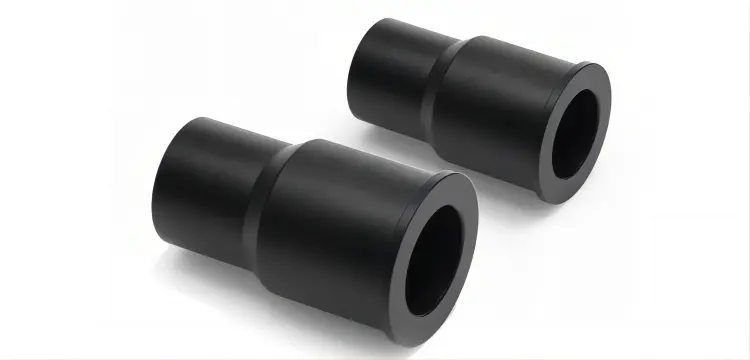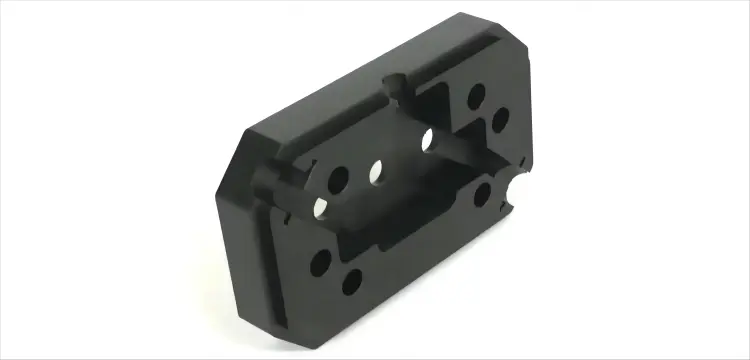CNC machining POM, or polyoxymethylene, is a plastic material widely used in engineering applications due to its high stiffness, low friction, and wear resistance. It is commonly used in the manufacture of gears, bearings, and other mechanical components.
CNC machining POM requires specialized cutting tools, machines, and techniques to achieve the desired accuracy and surface finish. Xintao has experience in CNC machining POM and can provide customized solutions for a range of applications.




POM is a popular material for CNC machining due to its stiffness, low friction, and wear resistance. Some common applications of POM CNC machining include:
1. Gears and bearings
2. Automotive parts - such as valve seats, fuel line connectors, and power steering parts.
3. Medical devices - including surgical instruments and implantable devices.
4. Electrical components - such as insulating washers, motor components, and circuit board components.
5. Consumer products - such as toys, office equipment, and kitchen appliances.
6. Aerospace and defense - such as aircraft components, sensors, and actuators
POM is a popular material for CNC machining due to its stiffness, low friction, and wear resistance. Some common applications of POM CNC machining include:
Gears and bearings
Automotive parts - such as valve seats, fuel line connectors, and power steering parts.
Medical devices - including surgical instruments and implantable devices.
Electrical components - such as insulating washers, motor components, and circuit board components.
Consumer products - such as toys, office equipment, and kitchen appliances.
Aerospace and defense - such as aircraft components, sensors, and actuators
Delrin and POM (Polyoxymethylene) are often used interchangeably, but there are some nuances between them:
Brand Name: Delrin is a specific brand of POM manufactured by Dupont. It is a registered trademark and represents a high-quality, engineered version of POM.
Properties: Delrin is known for its excellent mechanical properties, such as high strength, rigidity, and low friction. It also offers good dimensional stability and resistance to wear and chemicals.
Grades: Delrin comes in various grades tailored for different applications, including high-performance versions with enhanced properties.
Material Type: POM is a general term for a family of engineering thermoplastics known for their high strength and stiffness. Delrin is one of the many brands of POM, but POM can also be found under other brand names and in different grades.
Properties: POM, in general, shares the same core characteristics—high mechanical strength, stiffness, and low friction. It also has good dimensional stability and resistance to wear, but specific properties can vary depending on the manufacturer and grade.
Grades: POM can be produced in various formulations, such as homopolymer or copolymer versions, with different characteristics depending on the intended use.
Brand vs. Generic: Delrin is a specific, branded version of POM, whereas POM is a generic term that encompasses various brands and formulations.
Quality and Consistency: Delrin is known for its high quality and consistent performance due to strict manufacturing controls by Dupont. Other POM brands or grades may have different properties based on their formulation and production methods.
While Delrin is a specific type of POM with well-defined properties and a strong reputation, POM is a broader category that includes various brands and grades with similar but potentially varied characteristics.
The tolerance of POM (Polyoxymethylene) machining typically ranges from ±0.05 mm to ±0.1 mm, depending on the complexity of the part and the machining conditions. However, with advanced CNC equipment and proper tooling, tighter tolerances can be achieved, sometimes as precise as ±0.02 mm.